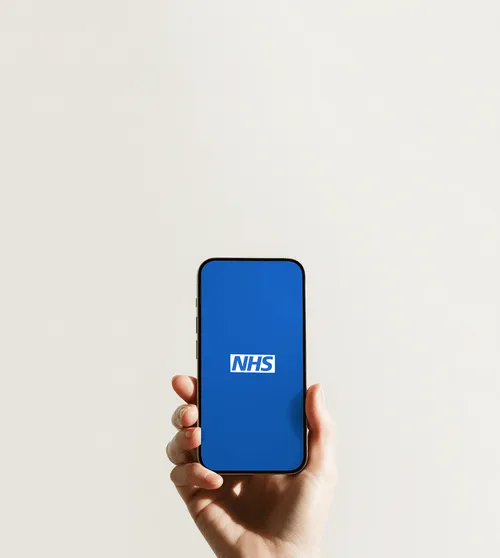Empowering the Digital Front Door
The NHS App Evolution
The upgrading of the NHS App from a basic digital interfaceinto a comprehensive, intelligent gateway for healthcare services represents apivotal opportunity in NHS modernisation. This evolution transcends the mereaddition of digital features; it fundamentally reimagines how patients accessand experience healthcare through clinical intelligence.
The NHS digital strategy aspires to make the NHS App theuniversal entry point for healthcare services. However, simply replicatingexisting services in digital form will not drive widespread adoption. The keylies in delivering a dramatically superior patient experience that incentivisesdigital-first access - much as Deliveroo and Uber revolutionised theirindustries through convenience and reliability that traditional services couldnot match.
Rapid Health’s approach upgrades the NHS App through embedded autonomous clinical intelligence that creates tangible value in three critical ways.
First, it enables true clinical navigation rather than basic digital access. While the current NHS App offers limited functionality such as appointment viewing, test results and prescription requests, the enhanced version provides intelligent care navigation powered by the same clinical engine that drives Smart Triage. This ensures patients receive appropriate clinical assessment, guidance, and care options instantly, without waiting for manual review.
Secondly, it creates a unified patient experience across all healthcare touchpoints. A patient requiring same-day care could immediately see and book from available appointments across their local practice, nearby practices, or walk-in centres - with all options presented based on clinical appropriateness rather than arbitrary access rules. For hospital care, autonomous triage works like online check-in for airlines, allowing patients to complete their initial assessment at home, select from available locations, and receive estimated treatment times - eliminating the need to wait in A&E for initial nurse assessment.
Thirdly, it dramatically expands access while reducing system pressure. This is not theoretical - evidence from Rapid Health’s primary care implementations, covering approximately 1.2 million patients across all demographic segments, demonstrates the proven effectiveness of this approach. When backed by clinical intelligence, digital access not only increases face-to-face care delivery (with 85% of appointments booked via Smart Triage conducted in person) but also improves efficiency through better initial navigation and triage.
The NHS App will organically become patients’ preferred access choice through a self-reinforcing cycle of superior experience and word-of-mouth adoption. Patients using the enhanced app experience immediate advantages - 24/7 access without phone queues, significantly more appointment options (an average of 104 per request), faster resolution of health concerns, and clear guidance on next steps. These early adopters become natural advocates, sharing their positive experiences with family and friends.
Crucially, the system creates a “digital advantage” where app users receive objectively better service - more appointment choices, shorter waiting times, and greater convenience - compared to traditional access methods. Unlike many digital initiatives that simply replicate existing processes online, this creates a genuine incentive for patients to shift their behaviour. The NHS App becomes not just another access channel but the clearly superior option for healthcare navigation.
The economic value is equally compelling. By shifting patient contacts from telephone to digital channels and providing 24/7 access with autonomous navigation, the enhanced NHS App can prevent unnecessary A&E attendances while optimising the use of primary care resources. This not only improves the patient experience but also delivers significant cost efficiencies across the healthcare system.




